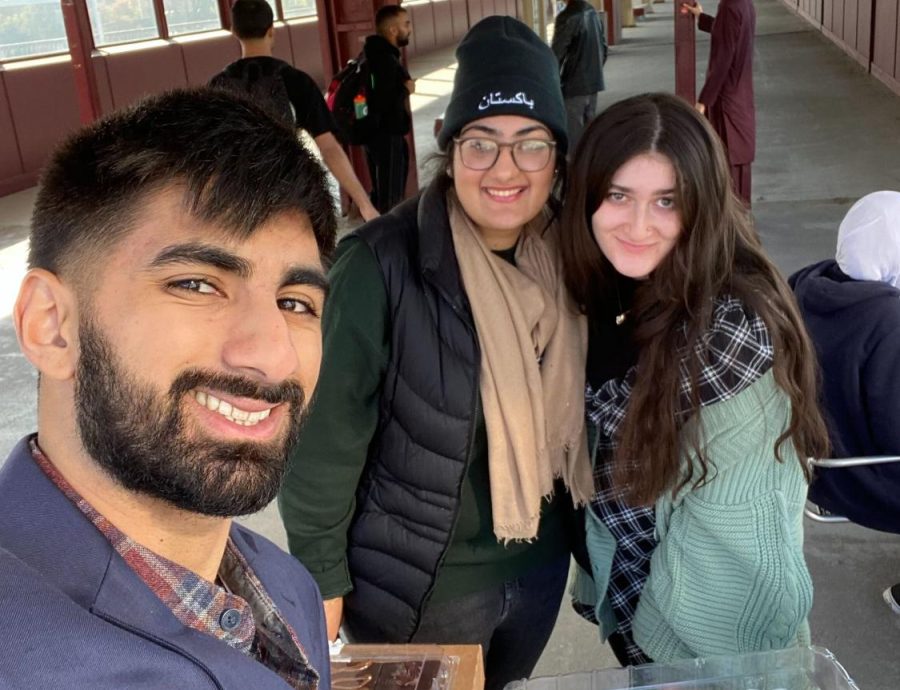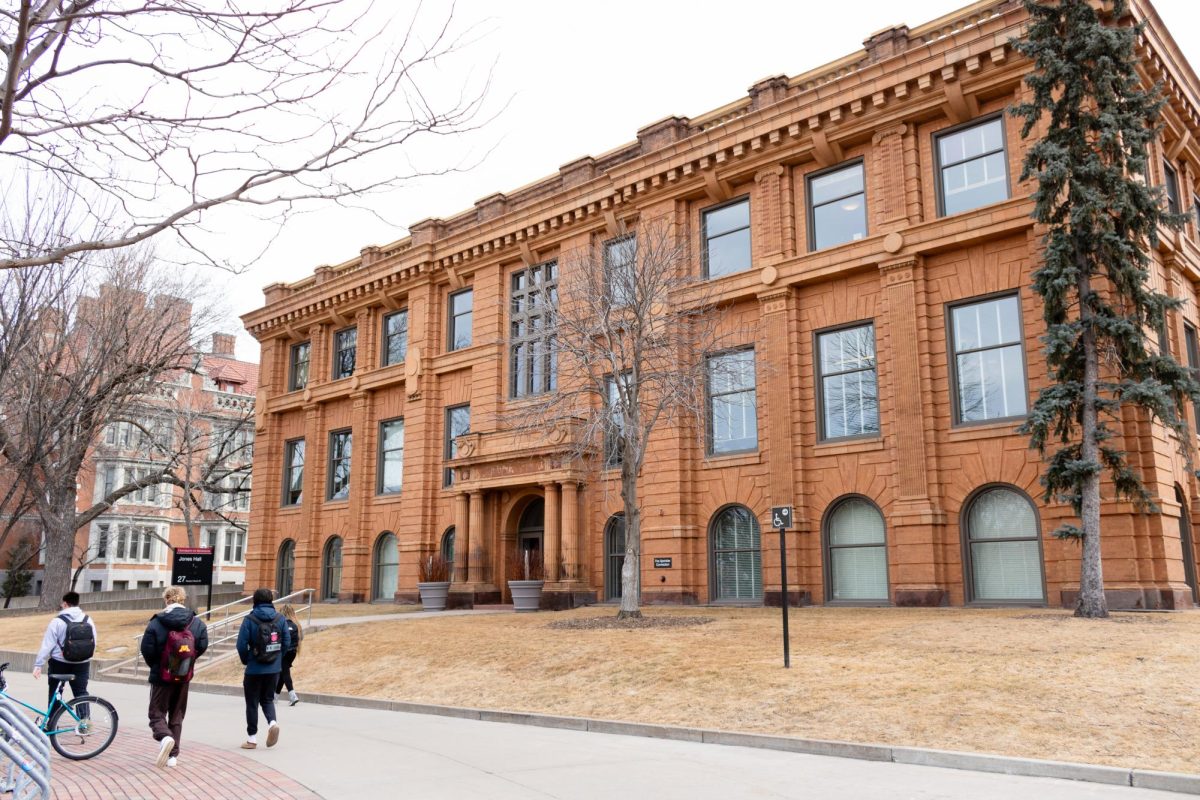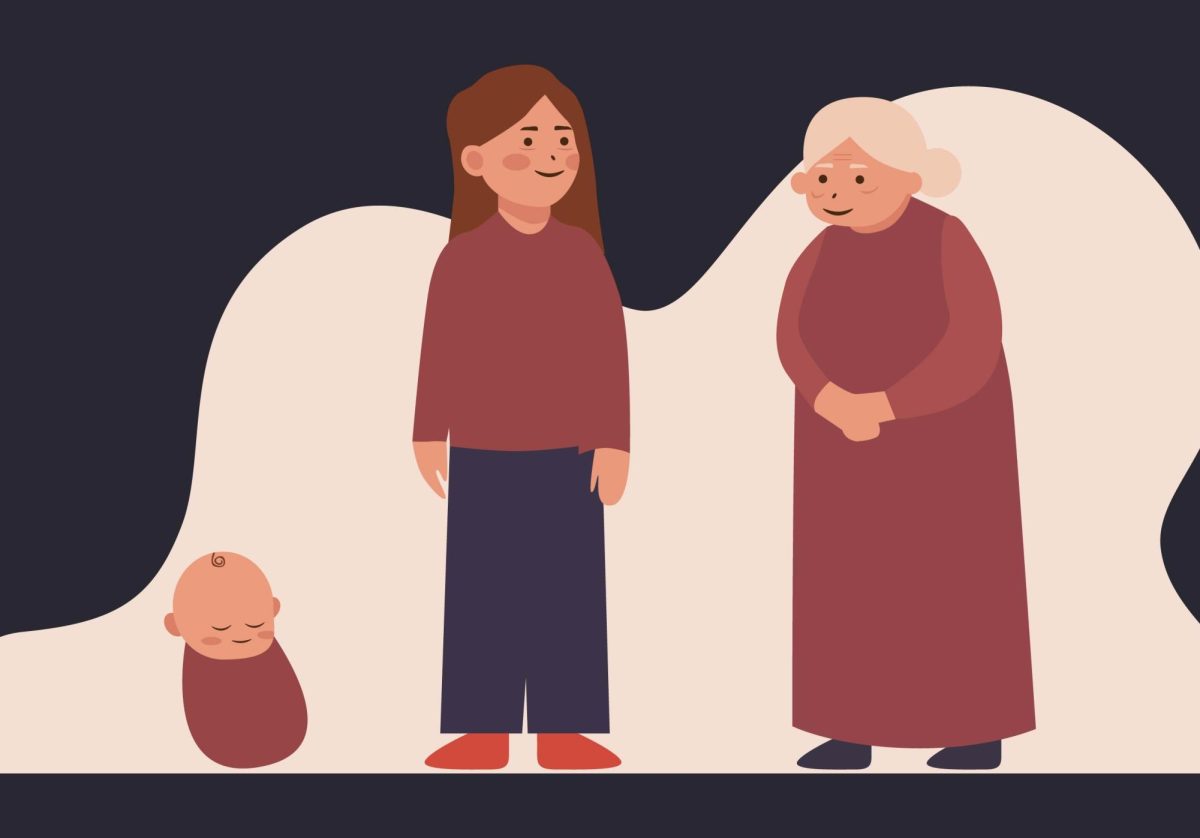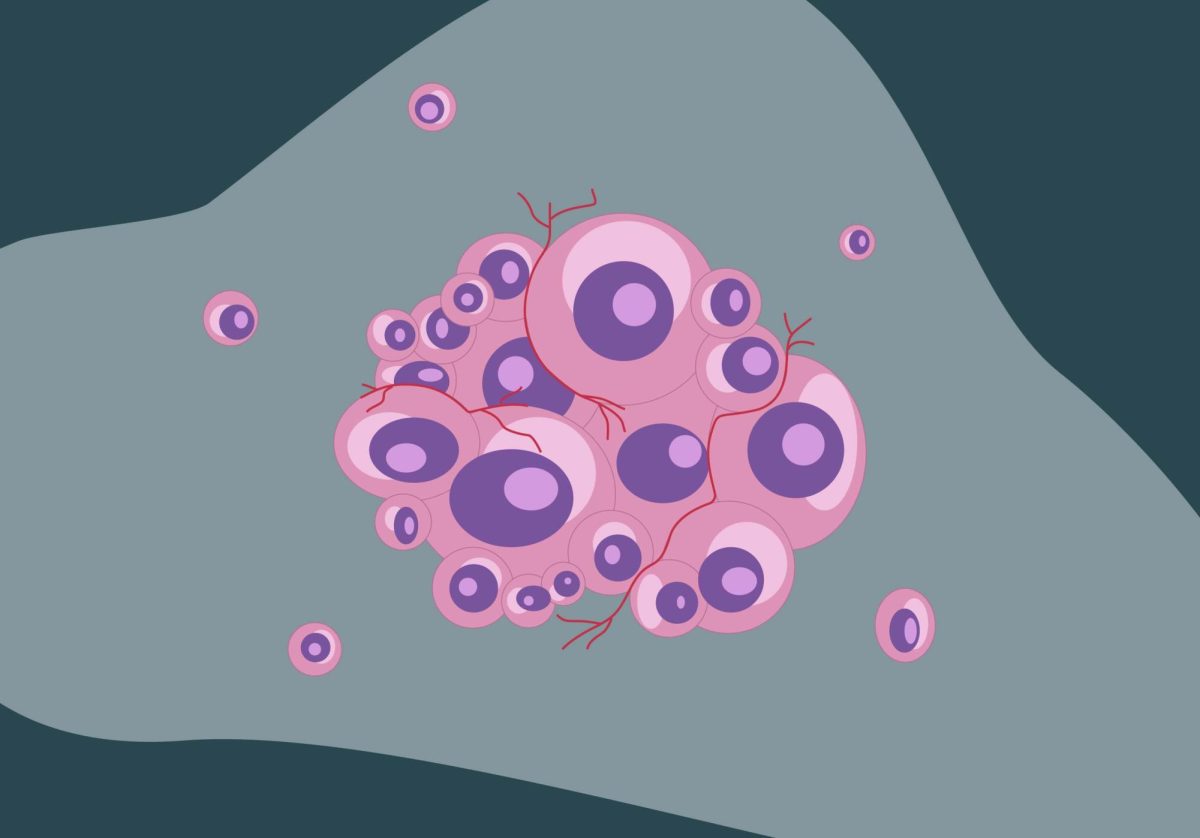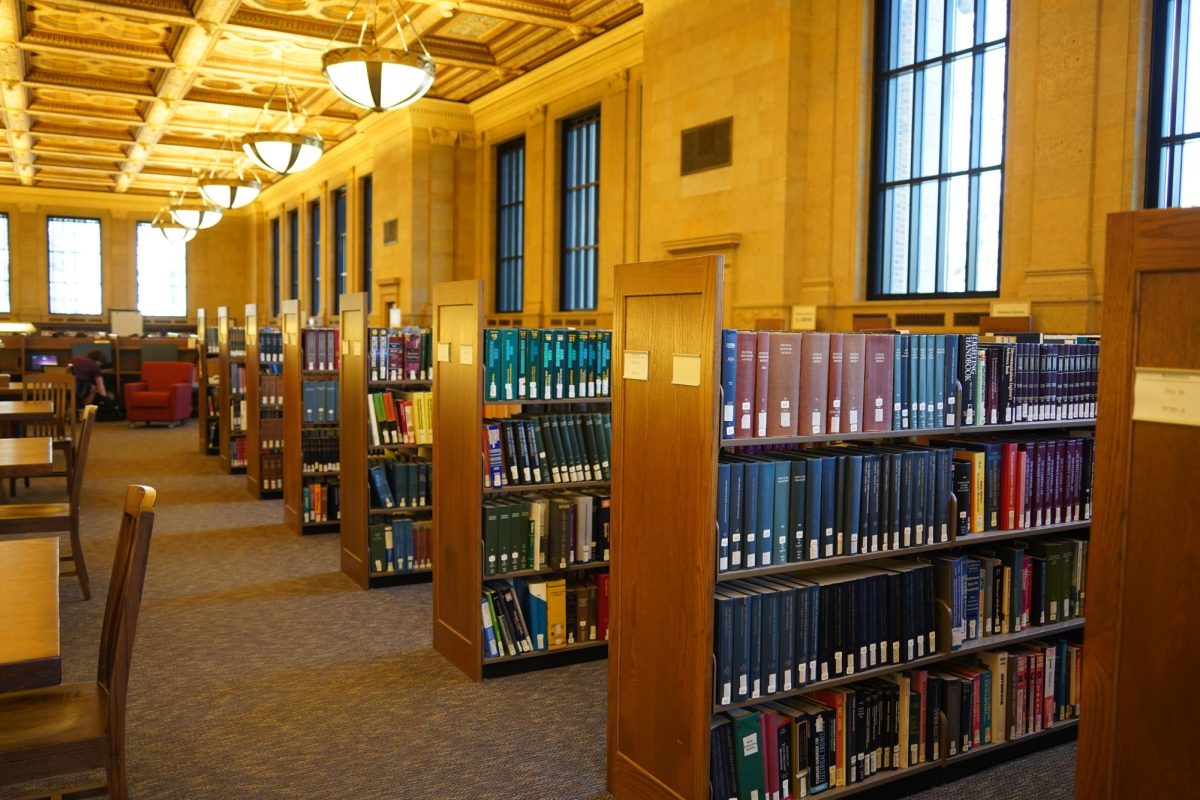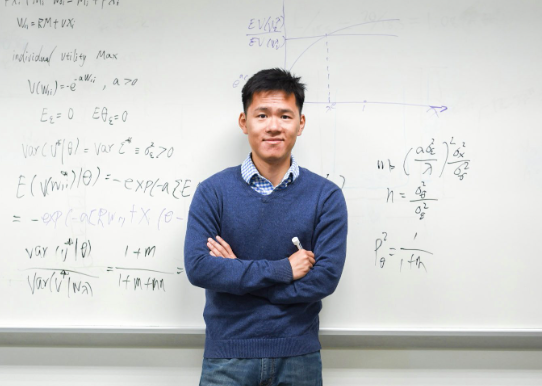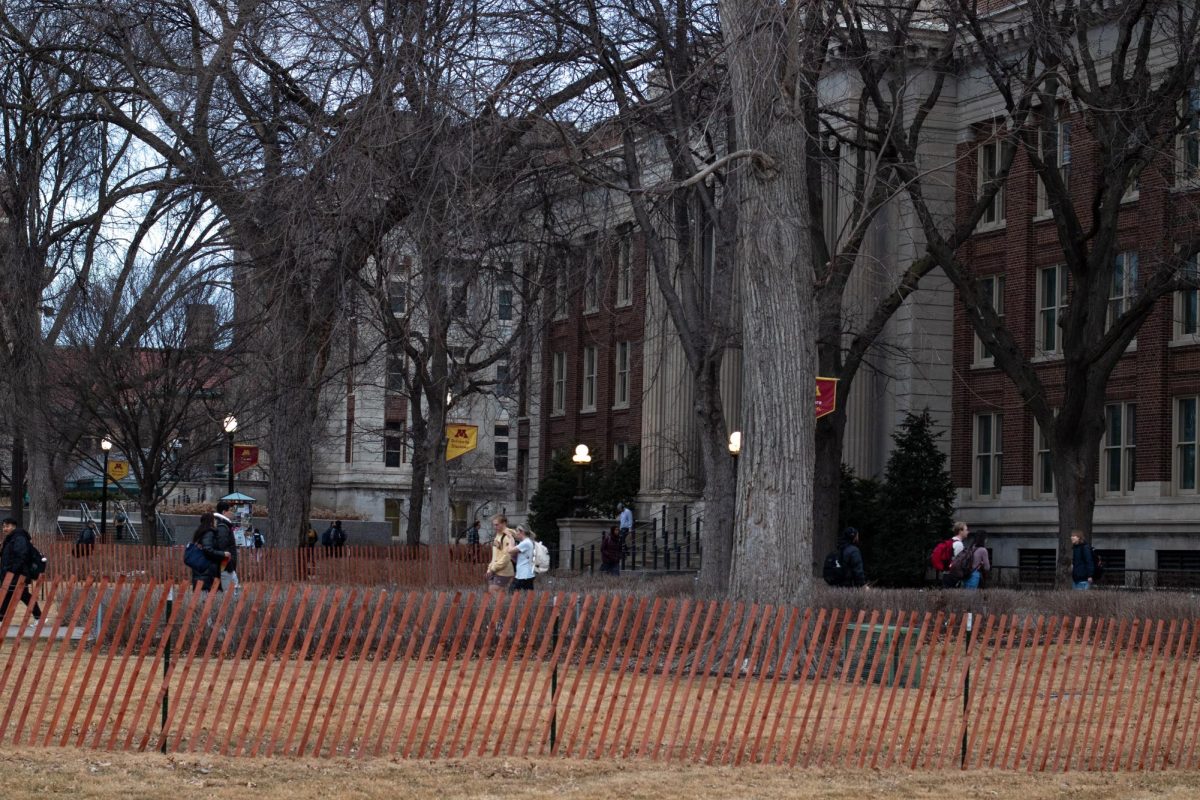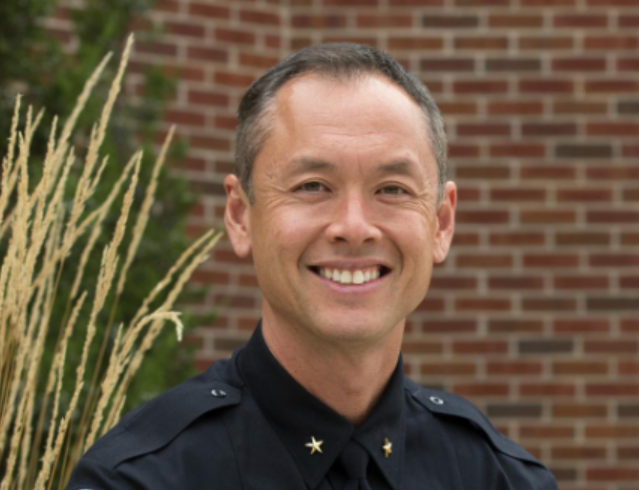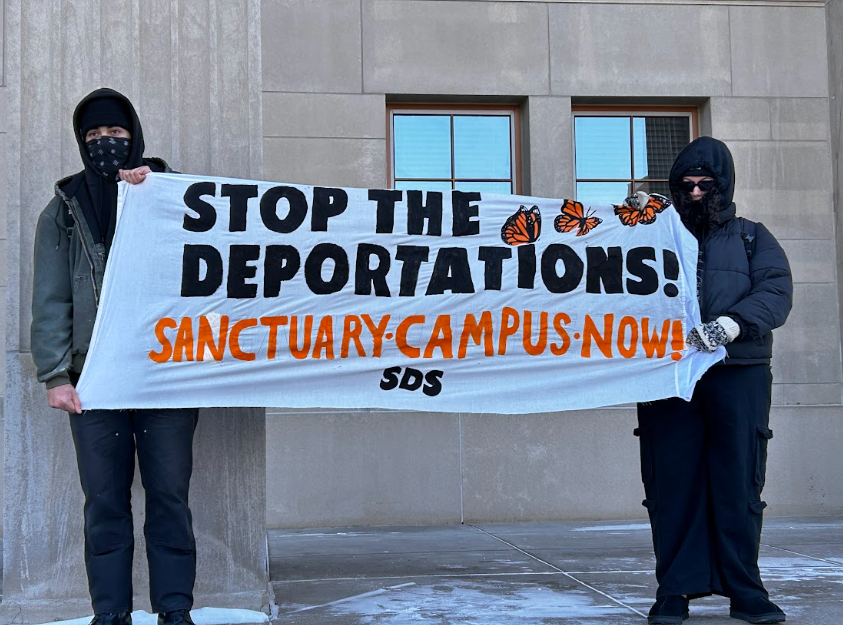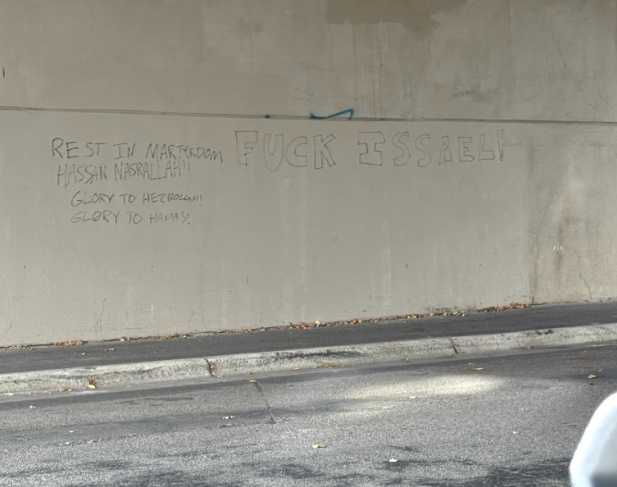The Pakistani Students Association (PSA) brought chai, cookies, henna and warm smiles to the Washington Avenue Bridge on Oct. 21.
The Chai Shai Fundraiser was one of many events University of Minnesota student groups hosted to gain recognition and raise funds since COVID-19 restrictions on their activities were lifted.
Valeed Abid, PSA co-president and a senior at the University, said while last year was a transitional year from COVID-19, this year the group is moving back to fully in-person events and working to boost attendance.
“A lot of our culture is driven by food, so it’s really hard to share virtually,” Abid said. “Even things like music and stuff like that – it’s just not the same through a laptop.”
The other PSA Co-President Ali Mashadi, now a University senior, said he already knew some of the PSA board members when he came to the University during his senior year of high school through Post Secondary Enrollment Option (PSEO) five years ago. Back then, about 100 people would attend PSA events, while only about 20 to 50 people show up now, he said.
Mashadi said he misses when more people knew about the group and its members.
“Anywhere on campus people would immediately recognize and know who you are, they would know who the group is, they would know the culture,” Mashadi said.
PSA Co-Vice President Saleha Anwar, a junior at the University, was not a member of PSA before the pandemic, but because of the group’s size, she knew who they were.
“In 2018, this group was huge and everyone knew about it and everyone knew everyone,” Anwar said. “Because of COVID-19, the group got super small.”
A small group means smaller events, which often means less funding for PSA, Mashadi said. With the pandemic limiting opportunities for in-person events and fundraisers, the group is struggling to recover during the first “back to normal” school year, Mashadi said.
“COVID-19 has significantly affected our group in financial ways and social ways and all the ways that you can think of,” Mashadi said.
Mashadi said PSA’s objective is to grow into the bigger group that people once recognized to achieve their goals of creating a safe space for Pakistani students and educating others about what makes their culture unique.
“Most definitely it is something that we still have to work on,” Mashadi said. “I will say that among the 13 board members, we tried our best before the last two events to market and to get out there.”
Other groups face similar challenges
Another cultural organization, the Taiwanese Student Society (TSS), has also faced membership and fundraising problems due to shifts in students’ interactions with campus groups following the pandemic.
TSS, which wants to increase membership to reach Taiwanese students and strengthen the relationship between Taiwan and the U.S., began meeting again in 2021 after halting the organization’s operations during the pandemic.
“Our organization lost its registered student group status, public recognition and funding opportunities,” TSS member Anson Wu said. “The new board in 2021 had to start TSS from the ground up with no experience.”
In 2017, TSS put on a night market at Coffman Union with more than 100 attendees. For similarly large events, TSS now has to collaborate with other organizations because of their small size and lack of funding.
“The main direction our organization has taken is to increase public recognition through a newly started Instagram account, collaboration with other organizations, and newsletters,” Wu said in a statement to the Minnesota Daily.
Along with TSS, PSA has worked on becoming more accessible online with a new website, Instagram page and Linktree.
Students for Reproductive Freedom (SFRF), the University’s chapter of Planned Parenthood Generation Action, has a different problem when it comes to accessibility. With no official member registration and only five officers, SFRF has only been able to hold officer meetings instead of their past biweekly general meetings.
Claire Jordahl, a senior who serves as an officer and SFRF’s secretary, said when she joined the group as a freshman, the group would see 50 people at their biggest annual event. That number dropped to six people this year.
During the pandemic, Jordahl said she was the only non-officer member who would attend the SFRF Zoom meetings. However, she said she cannot tell which lasting changes were caused by the pandemic.
“There’s so many options out there and since the pandemic, so many changes,” Jordahl said. She said she understands that many students are overwhelmed by other commitments and too busy for “fun things.”
At monthly events like Sex in the Dark and Cupcakes and Consent, SFRF combines fun with education about reproductive health and rights. Students ask anonymous questions to the group, either in the dark or with treats.
The best way to make a difference is to show up, Jordahl said.
“If you’re interested in this cause and you want to make a change, taking action is how you can do that,” Jordahl said.
Facing the future
Mashadi said he was proud of the attention PSA received at this year’s Chai Shai event. The group made a profit of $129.38 after spending a couple of fun hours on the bridge, he said in a statement.
“This year we’re really hoping that people get to know us more,” Anwar said.
SFRF is also looking toward the future, with plans on returning to their biweekly general meetings in the spring semester and adding more events.
“It’s fun being on student orgs,” Abid said. “I wish more people on campus joined because I feel like they don’t know what they’re missing out on.”


